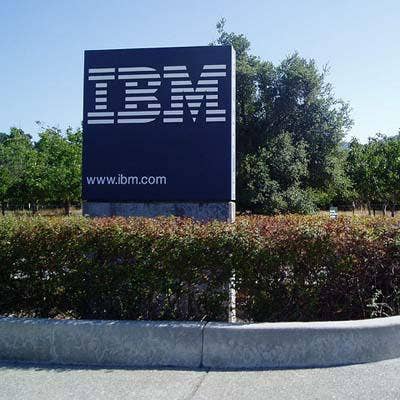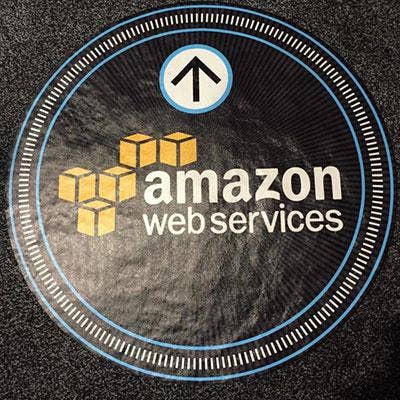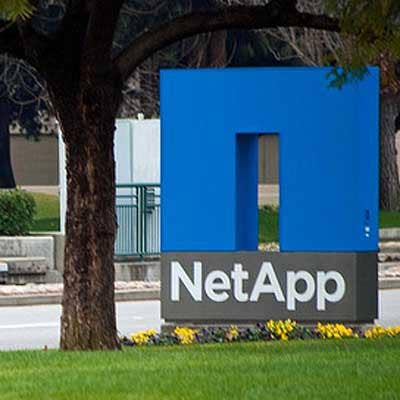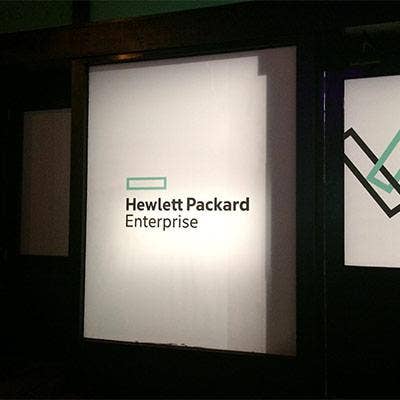The 10 Biggest Storage Stories Of 2017

Shifting Tides In The Storage Space
Hyper-converged infrastructure, all-flash and hybrid flash storage, and software-defined storage have been on the rise for the past few years, but 2017 took the trends to new heights. Traditional storage vendors took the shifting market to heart, making changes within their own product portfolios and forming much-needed partnerships with cloud players.
In fact, 2017 saw a palpable shift with storage sales moving to cloud and hyperscale companies, and away from traditional vendors who have reigned in this space for years. As the demand for hybrid cloud picks up steam, and as buying habits change, this trend will like continue -- and even accelerate -- beyond 2017.
Here's a look at the top happenings that took place in the storage market in 2017.
Get more of CRN's 2017 tech year in review.

10. Startup Qumulo Raises $ 30 M In Funding
Storage technology developer Qumulo raised an impressive $30 million in new funding in April, which the company said at the time would help expand its geographic reach and its sales representation. Now, Qumulo is working on providing a high-performance all-flash file storage system on modern industry-standard hardware by extending its Qumulo File Fabric (QF2) into on-premise, all-flash instances. The Seattle-based company has said its systems can now hit performance speeds of 4GB/s per node, 16GB/s for a minimum four-node cluster, and up to 1.6TB/s of throughput on a 400-node QF2 system.
Qumulo was formed in 2012 by veterans of Dell EMC's Isilon scale-out NAS business.

9. Storage Investments High In 2017
Qumulo wasn't the only startup raising money in 2017. Venture Capital firms were seeing the value in investing in storage startups throughout the year.
Among startups in the storage space, Rubrik took the cake with $180 million during the year. Databricks raised $140 million; Infinidat raised $95 million, Oodrive took in 65 million Euros, Druva raised $80 million, Nasuni raised $38 million, and Panzura gained $32 million in funding during 2017.
8. Dell EMC Goes Big With All-Flash Storage
Dell EMC this year sought to demonstrate the innovations in its storage strategy by placing its bets on software capabilities and hybrid cloud. The company, a leader in the storage market, this year unveiled an entirely refreshed product line.
Dell EMC in May introduced its VMAX 950F, its flagship enterprise flash storage array family. The company also touted its second-generation XtremIO high-end, all-flash block storage platform, which offers a 25 percent increase in the data reduction capabilities and supports scale-up, in addition to scale-out, according to Dell EMC. The vendor also revamped its Unity all-flash midrange array line with four models that take advantage of new CPU and memory capabilities.

7. I BM Rolls Out New Software, Utility Pricing for Storage Offerings
IBM, like its competition, also stepped up its storage game during the year.
Big Blue in October revealed new software and utility pricing for its FlashSystem Storage product portfolio. The company is working on expanding its entire flash storage portfolio by including 3D TLC flash technology, which increases storage density by three times that of previous generations, according to IBM. The company also unveiled updates to its storage software portfolio, which will allow its offerings to work better with hybrid clouds, as well as provide consumption-based pricing. In addition, IBM in October introduced block storage support for containers as a way to manage cloud-native operations with stateful containers.

6. Amazon Ends Unlimited Cloud Storage Plans
In June, market heavyweight Amazon put a stop to its policy of providing free unlimited cloud storage through Amazon Drive, its video, photo, and document storage service. Instead, Amazon is now giving consumer and business users a smaller amount of free capacity in the Amazon cloud and charging for capacity beyond that.
Using Amazon Drive, customers are now limited to 5 GBs of free cloud storage capacity. Customers are charged $11.99 for between 5 GBs and 100 GBs, and $59.99 for up to 1 TB of capacity. Customers exceeding 1 TB will pay an additional $59.99 per TB up to 30 TBs, according to Amazon.

5. Storage Sales Fall Away From Traditional Vendors
Sales shifted in the enterprise storage market during 2017 with sales moving in favor of cloud and hyperscale companies, as traditional, hardware-based storage vendors felt the pinch.
A report from research firm IDC that looked at the storage market during the second half of 2017 found that storage sales from the leaders in this space, including HPE, Dell EMC, and IBM, all fell when compared to storage sales a year ago. IDC said that traditional storage vendors are expanding their product portfolios to take advantage of the push towards all-flash and converged and hyper-converged systems.

4. Nutanix, Google Partner For Easier Hyper-Converged Infrastructure Migration
Hyper-converged technology player Nutanix and Google revealed a partnership in June to make moving Nutanix-based hyper-converged infrastructure workloads easier to the Google cloud. The two companies said at the time that the partnership will help build a bridge between on-premise and cloud deployments.
Specifically, Nutanix announced support for Google's container technology Kubernetes, which now allows Nutanix customers to run applications built in Kubernetes containers on-premise and in the Google Cloud Platform. Customers can also run native Nutanix services and Kubernetes container applications in both on-premise and in the Google Cloud Platform through the Nutanix Xi Cloud Services, launched in 2017.
3. Hitachi Brings Together IT, OT Within Hitachi Vantara
In a move to become one of the first companies to combine IT and operational technology, Hitachi Ltd in September combined several of its businesses, including storage and data center infrastructure -- otherwise known as Hitachi Data Systems -- its Pentaho big data analytics business, and Hitachi Insight Group IoT into a new company called Hitachi Vantara.
The Japan-based company said the goal of the tie-up is to deliver new collaborative data offerings for commercial and industrial enterprises. Hitachi Vantara, at the time of the announcement, also revealed the commercial version of its first IoT platform, Lumada 2.0.

2. NetApp Places Its Bets On Software
NetApp, a storage and data management specialist, this year acknowledged that it could eliminate its hardware business and go all-in on software, and still continue its successful growth streak.
That declaration was a departure from what competing storage vendors have been doing all along. However, NetApp's co-founder also admitted that investors would have trouble understanding an all-software strategy. Sunnyvale, Calif.-based NetApp was one of the few storage vendors that showed growth in 2017.

1 . HPE Acquires Nimble, SimpliVity
Hewlett-Packard Enterprise (HPE) in February closed its $650 million acquisition of hyper-converged infrastructure pioneer SimpliVity, and in April, completed its $1 billion deal for all-flash storage player, Nimble.
The move by HPE signaled an intention to grab share in the fast-growing hyper-converged infrastructure market. HPE also pledged to put 100 percent of the sales of its newly-acquired hyper-converged players Simplivity and Nimble through its channel partner community.